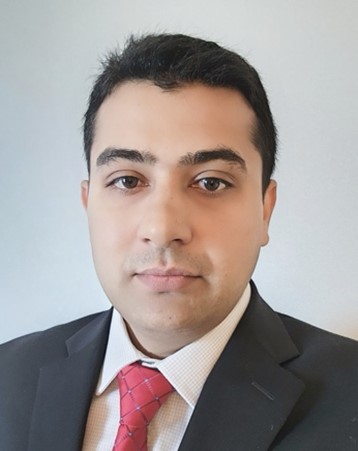Novel Gene Therapy for Chronic Ischemic Heart Failure
Muhammed Khan, Ph.D.
Associate Instructor, Cardiovascular Research & Training Institute, University of Utah
Tuesday, April 30th at 11:45 am
In-Person in SMBB 2650
Dr. Muhammad Khan is an associate instructor at the University of Utah’s Cardiovascular Research and Training Institute (CVRTI). He completed his PhD in Electrical Engineering from The University of Alabama in Huntsville in 2016. In his first postdoctoral research with the Department of Bioengineering at The University of Illinois, Urbana-Champaign, he developed paper-based point-of-care diagnostic technology for various healthcare applications. In 2018, Muhammad joined CVRTI and his research was focused on cardiac surgery patients’ atrial electrical mapping to study conduction disorders responsible for postoperative atrial fibrillation. Dr. Khan’s current research focuses on cardiac electrical, functional, and structural remodeling in response to new interventions and therapeutics for myocardial ischemia, arrhythmia, and heart failure. Muhammad was recognized with numerous prestigious research and fellowship awards, including the NSF-SBIR Phase-II Award as Principal Investigator, the NSF Young Professional Award, the American Heart Association Postdoctoral Award, and the NIH-T32 Cardiovascular Medicine Postdoctoral Award. Dr. Khan’s innovative gene therapy research was recognized with the highly competitive “HRS Eli S Gang Most Innovative Award” at the Annual Heart Rhythm Society Meeting last year. Dr. Khan has also been awarded the AHA Career Development Award to continue gene therapy work in a large preclinical ischemic HF model.
Dr. Khan’s long-term research goal is to develop and teach a multidisciplinary, translational “Right Heart Recovery Program” at the University of Utah. He plans to establish preclinical/clinical research studies that will elucidate the mechanistic understanding of reversing RV remodeling, reducing RV ischemic burden, improving RV perfusion pressure, and developing new strategies to prevent right-sided heart failure in patients with pulmonary hypertension and end-stage heart failure, including HFpEF.
Abstract: Heart failure (HF) is the major cardiac syndrome that needs to be treated urgently in the United States and worldwide. Although there are some options available for treating advanced HF by targeting systemic stress pathways, very few treatments are available that specifically target failing heart muscle. The key pathological hallmark of HF is an abnormal calcium transient, impairing both contraction and relaxation. In small animals and humans, cardiac bridging integrator 1 (cBIN1), which organizes calcium microdomains and the calcium handling machinery, is diminished in both systolic and diastolic HF. In my talk, I will discuss a cBIN1 gene therapy that has been tested in a preclinical large animal model of ischemic HF. The hypothesis is that adeno-associated virus 9 (AAV9)-transduced exogenous cBIN1 restores functional contractility, improves diastolic function, and reduces arrhythmogenic substrate in a canine model of ischemia-induced HF. The cardiac functional and structural benefits of cBIN1 gene therapy were studied using echocardiography, invasive hemodynamic monitoring, serum biomarkers of cardiac stress, and intracellular T-tubule structural remodeling over time. To further determine the effectiveness of cBIN1 gene therapy in reducing the arrhythmogenic substrate, local electrical activation times were acquired through electroanatomical endocardial mapping, epicardial sock mapping, and optical mapping. This cBIN1 gene therapy is expected to be the first therapy in medicine that directly targets and reverses cellular remodeling in the myocytes of failing hearts, rescuing cardiac function, providing a mortality benefit, and reducing arrhythmias prevalent in ischemic HF. Demonstrated results will pave the path of translating this therapy from a promising lab finding closer to clinical realization.
